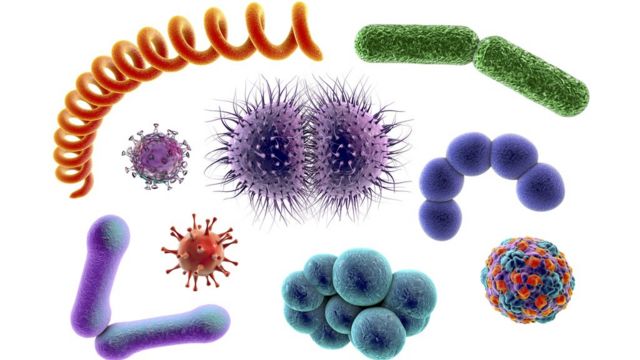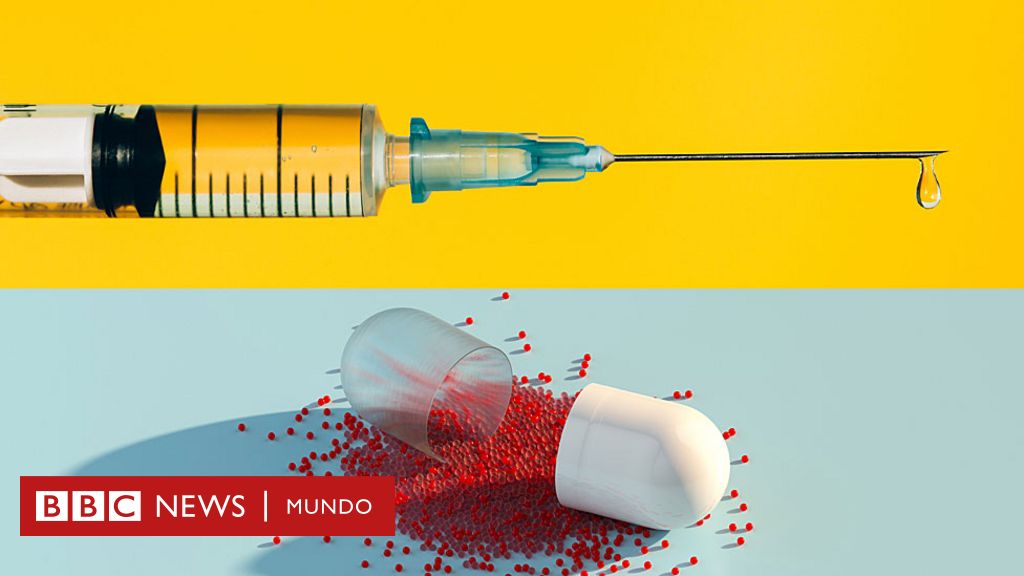- Celia Souque y Louis du Plessis *
- The Conversation
—
1 hour
Image source, Getty Images
—
Why are vaccines created a century ago effective while antibiotics stop being so after a few years?
–
Antibiotic resistance is a global problem insofar as there is a serious risk that common infections will soon become untreatable. Meanwhile, vaccines developed nearly a century ago still protect us from deadly diseases. What could explain this difference?
–
Bacteria have developed resistance to all antibiotics. Sometimes that happens very soon after an antibiotic is introduced. In just six years, resistance to penicillin, the first antibiotic, became widespread in British hospitals.
–
But resistance to vaccines has only occurred rarely. And vaccines have helped us to eradicate smallpox and hopefully polio soon too.
–
A 2017 study proposed two compelling arguments to explain this phenomenon, highlighting crucial differences between the mechanisms of drugs and vaccines.
–
But first, let’s explain what we understand by resistance and how it originates.
–
During an infection, viruses and bacteria multiply rapidly. In the process, they copy your genetic material millions of times. In doing so, mistakes often occur, with each mistake slightly altering their genomes. These errors are called mutations.
–
Most of the time, mutations have little or no effect or are very detrimental to the effectiveness of the virus.
–
But sometimes, very rarely, pathogens can get lucky and a mutation can prevent an antibiotic from entering a cell or change the site where a drug or antibody would bind, preventing them from acting.
–
We call these mutations of “resistance” or “escape”.
–
First difference: number of targets
Vaccines work by introducing a harmless part of a pathogen, called antigen, in the body.
–
These train our immune systems to produce Y-shaped proteins, or antibodies, that specifically bind to them.
–

Image source, Science Photo Library
—
How you attack pathogens is what makes the difference.
–
They also stimulate the production of specific white blood cells called T cells, which can destroy infected cells and help make antibodies.
–
By binding to antigens, antibodies can help destroy pathogens or prevent them from entering cells.
–
Furthermore, our immune system creates not just a single antibody, but up to hundreds of different antibodies, or epitopes, each of which targets different parts of the antigen.
–
In comparison, drugs, such as antibiotics or antivirals, are usually small molecules that inhibit a specific enzyme or protein, without which a pathogen cannot survive or replicate.
–
As a result, drug resistance generally only requires single site mutation.
–
On the other hand, although not impossible, the probability that escape mutations will evolve for all, or even most, of the antibody-driven epitopes is extremely small for most vaccines.
–
With drugs, reducing the likelihood of resistance can be achieved in a similar way by using several at the same time, a strategy called combination therapy, which is used to treat HIV and tuberculosis.
–
You can think of your body’s antibodies acting as a massively complex combination therapy, with hundreds of slightly different medications, thus reducing the chance of resistance developing.
–
Second difference: number of pathogens
Another key difference between antibiotics and vaccines is when they are used and how many pathogens there are.
–
Antibiotics are used to treat an established infection when there are already millions of pathogens in the body. But vaccines are used as prevention.
–

Image source, Getty Images
—
What does all this tell us about the fight against coronavirus?
–
The antibodies they create can act early in an infection when the number of pathogens is low. This has important consequences, since resistance is a numbers game. A resistance mutation is unlikely to occur during the replication of some pathogens, but the chances increase as more pathogens are present.
–
This does not mean that vaccine resistance never evolves – a good example is the flu. Thanks to its high mutation rate, the influenza virus can rapidly accumulate enough mutations that it is no longer recognized by antibodies, a process called “antigenic drift.” This partly explains why the flu vaccine must be changed every year.
–
What does this tell us about the SARS-CoV-2 vaccines? Should we be concerned about the loss of efficacy of the new vaccines?
–
Fortunately, the new coronavirus has a proofreading mechanism that reduces the mistakes it makes in replicating its genome and means that mutations occur much less frequently than in flu viruses.
–
Furthermore, it has been confirmed that the Oxford / AstraZeneca and Pfizer / BioNTech vaccines can effectively stimulate the binding of antibodies to multiple epitopes, which should slow the evolution of resistance.
–
However, we must be careful.
–
As mentioned above, numbers matter when it comes to endurance. The more viruses there are, as in a fast-growing pandemic, the more likely it is that one can win the jackpot and develop mutations that have a significant impact on the efficacy of the vaccine.
–
If that’s the case, a new version of the vaccine may be needed to create antibodies against these mutated viruses.
–
This is also why trying to keep infections low through prevention and contact tracing is vital to keeping vaccines working for as long as possible.
–
* Celia Souque is a postdoctoral researcher in Microbiology and Louis du Plessis is a postdoctoral research associate, both at the University of Oxford
–
This note originally appeared in The Conversation and is published here under a Creative Commons license.
–
 —
—
–
Now you can receive notifications from BBC News Mundo. Download our app and activate them so you don’t miss our best content.
—


